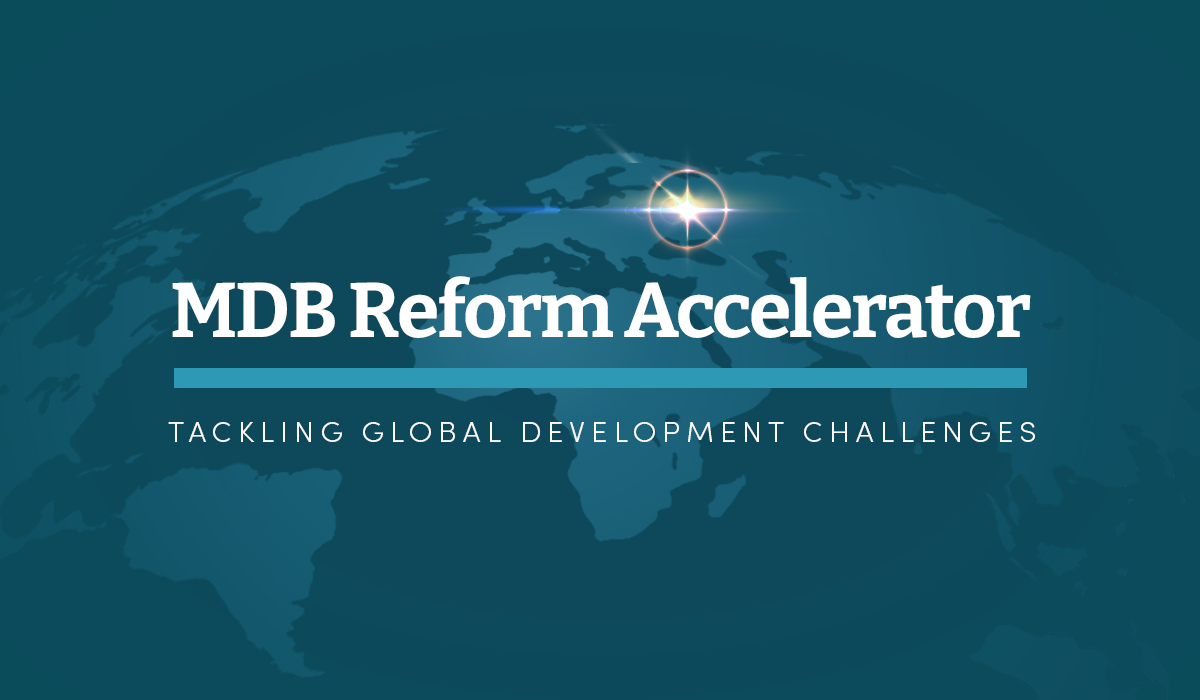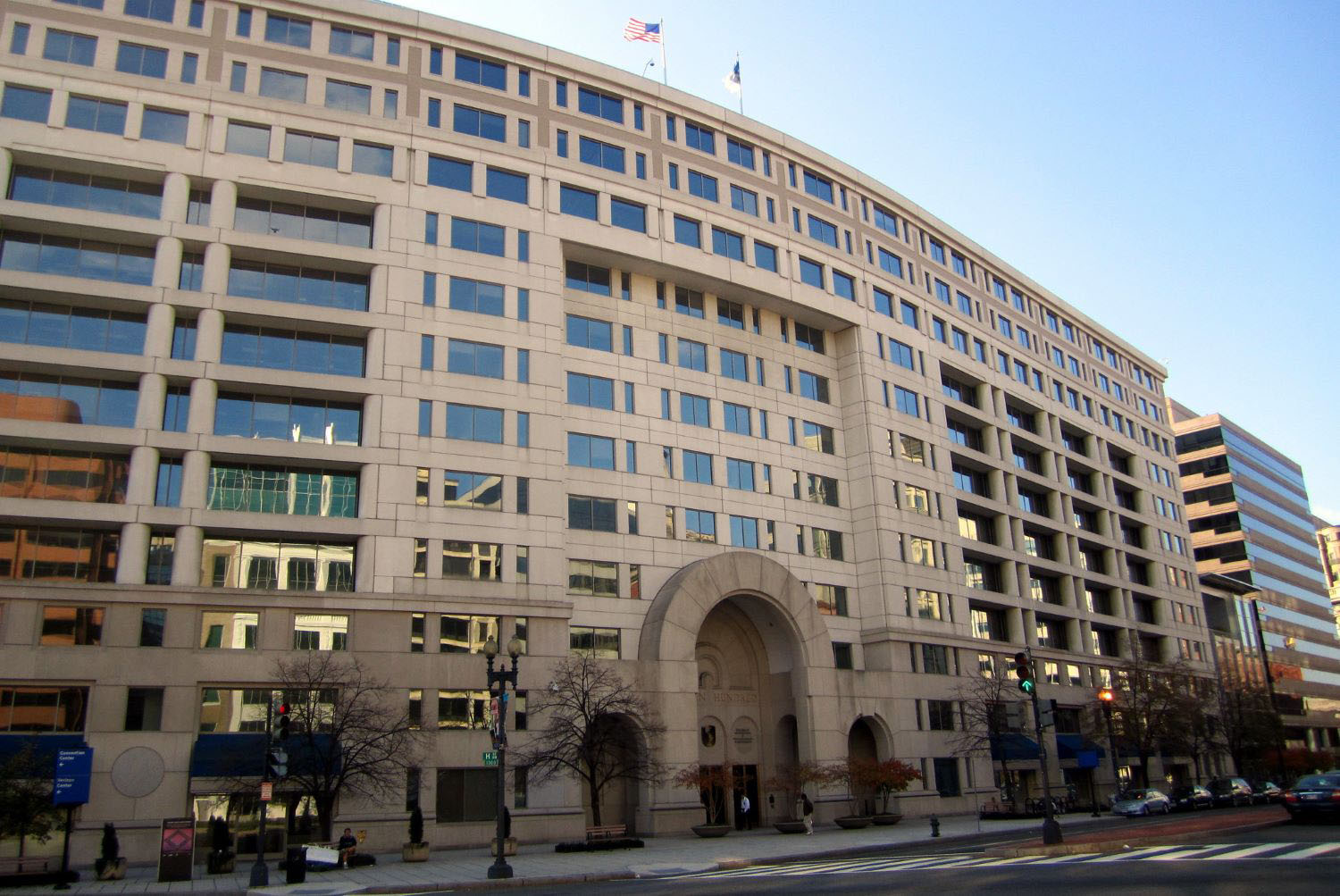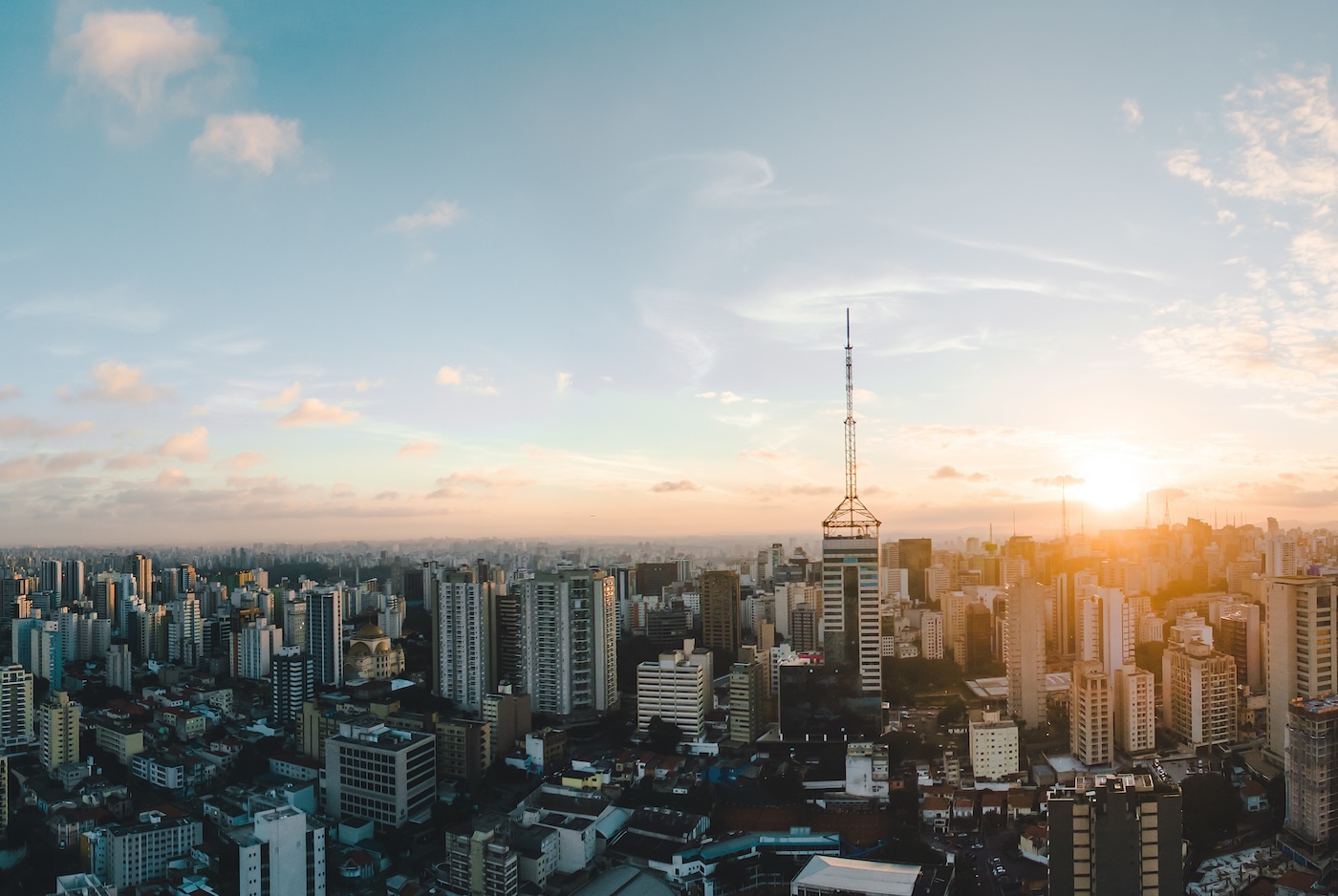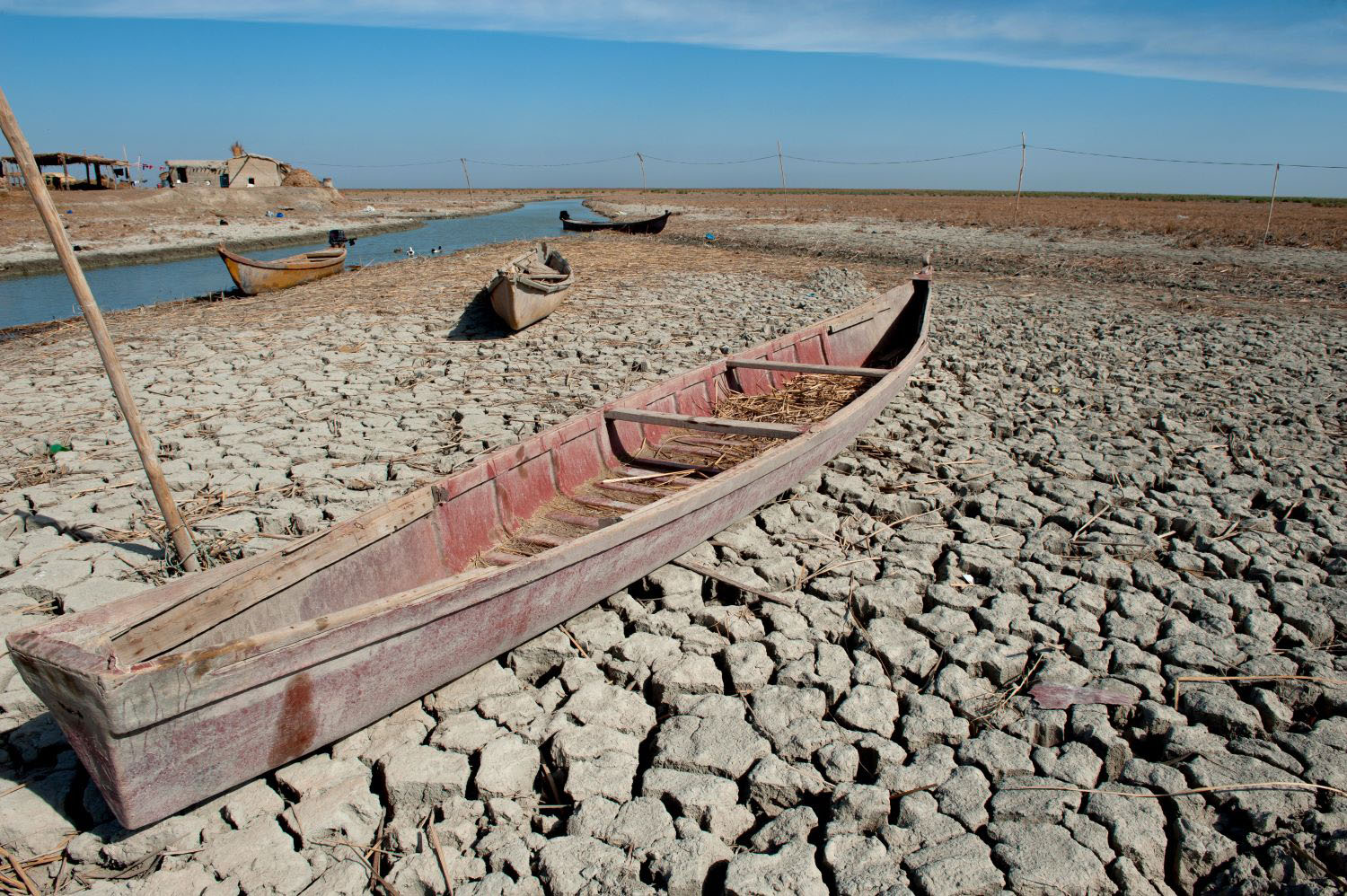Recommended

The World Bank and other multilateral development banks (MDBs) are undertaking major reforms so they can more effectively meet today’s global challenges, including climate change and pandemic preparedness. But the discussion has been dominated by high-income countries, rather than by citizens, institutions, and governments in the Global South.
Today, we wanted to provide a preview of some exciting research in the pipeline from the MDB Reform Accelerator—a collaboration between the Center for Global Development and several think tanks in the Global South that will produce new research on how the MDBs should reform to better support the development needs of client countries and meet today’s challenges.
What’s in the MDB Reform Accelerator’s research pipeline
How African financial institutions can collaborate better with MDBs, and how MDBs can contribute to green industrialization in Africa
By the African Center for Economic Transformation, a pan-African economic policy institute based in Ghana.
While naturally much focus has, to date, been on the World Bank and the IMF, regional and national financial institutions will also need to evolve in parallel to remain effective.
ACET is poised to address two research questions. The first is focused on coordination among African financial institutions to ensure structural and policy alignment. The second is how MDBs can work together to ensure a climate-positive green industrialization in Africa. These research questions are critically important given the financing needs of African nations, particularly when many are facing high debt stress, less grant and concessional financing, and a high Africa risk premium. Similar to international financial institutions, African financial institutions need to leverage balance sheets, introduce new approaches and innovation, and collaborate to maximize finance effectiveness.
The research questions will be addressed through desk analysis, background notes, and interviews and consultations with key stakeholders. A series of summaries will follow from each convening, and the project will include engagement with a wide range of global and African think tanks and other interested development partners.
How the MDBs and local public banks in Brazil can better partner to achieve a sustainable transition
By the Brazilian Center for International Relations based in Brazil.
In discussions about multilateral institution reforms, there is legitimate pressure for organizations like the World Bank to expand their focus to sustainable development. Yet, the financial needs to achieve these goals vastly exceed the current capabilities of MDBs. Our hypothesis, drawing from experiences in various countries, including Brazil, proposes that strengthening partnerships between MDBs and local public banks is key for mobilizing resources for national-level investments.
This collaboration should transcend simple resource transfers, involving support for developing high-quality sustainable project pipelines, mitigating risks during implementation, and creating financial risk mitigation mechanisms, like blended finance and guarantees. It should also build bridges for connecting with national and international private investors. This project seeks to analyze the practical implementation of this partnership, aiming to enhance investment impacts through collaboration between public and private banks.
This project will propose changes in MDB operations to encourage more robust partnerships. The project is aligned with other CEBRI initiatives, all examining aspects of domestic and international policies, particularly in sustainable development, with the ultimate aim of leveraging these efforts, aiding Brazil in guiding major discussions on international financial architecture as the host of the G20 (2024) and COP30 (2025).
What reforms are needed to ensure effective development cooperation between MDBs
By Center for Policy Dialogue based in Bangladesh.
Our study delves into the growing roles of Southern MDBs within the international financial architecture. The primary inquiry revolves around whether their rising prominence results from complementing, if not competing with, traditional MDBs, or whether they are carving out entirely new roles in the development financing landscape. In the pursuit of doing more with less, we also turn to the principles promoted by the Global Partnership for Effective Development Co-operation.
In this connection, demand for such growing and new roles of Southern lending institutions is emerging from a group of vulnerable countries, i.e., the graduating least developed countries (LDCs). Seven nations stand to graduate from their LDC status in the next four years. These countries are encountering immense challenges, including resource deficits for underwriting their smooth transition. Indeed, the lack of access to adequate development finance is exacerbating their structural constraints. In this view, this study takes on a case study approach to comprehend the context in which two graduating LDCs, namely Bangladesh and Nepal, find two Southern MDBs—the Asian Infrastructure Investment Bank and the Islamic Development Bank—as more suitable development partners.
Against this evolving context, aspects of the operational modalities of Southern MDBs may require reforms to become more effective players in the international development finance community. To this end, our study seeks to identify such areas, which include allocative priorities, implementation practices, and assessment modalities.
How MDBs can contribute to a green energy transition in emerging market economies
By the CSEP Research Foundation based in India.
There are various estimates available for climate finance at the global level. These estimates vary significantly, and it is not clear how they have been arrived at. Our study, an Assessment of Climate Finance Requirements for Key Emerging Market Economies, will estimate climate finance requirements for nine major emerging market economies (Argentina, Brazil, China, India, Indonesia, Mexico, Russia, South Africa, and Türkiye) within the G20.
The starting point of the study will be the current level of gross capital formation in each of the nine economies. The study will then assess climate finance requirements of these emerging market economies to bring GHG emissions to the desired level. The response of each economy may have to be different to deal with large capital flows required to mitigate the impact of climate change. The assessment of additional external capital will need to meet this reality test as most current estimates of green finance needed do not address this issue at all.
How MDBs can contribute to a green energy transition in South Africa and Pakistan
By the Partnership for Economic Policy Network based in Kenya.
The developing countries like South Africa and Pakistan face substantial hurdles in making the green energy transition. This collaborative dialogue and research explore how MDBs can utilize Southern researchers and institutions to source technical inputs for designing and financing such a transition.
In this project, PEP researchers from Pakistan and South Africa will analyze both the potential benefits and the investment needs for select economies, identifying local and foreign funding sources (including from MDBs) and offer Southern-led and designed policy recommendations.
By sharing our findings with MDBs and national governments, we aim to accelerate both South African and Pakistan's journey towards a sustainable energy future, setting an example for the Global South. In the backdrop of recent promises at COP28, this research is much needed by national policymakers and funders of energy transition.
How MDBs can improve domestic resource mobilization in East African countries to achieve development outcomes
By REPOA based in Tanzania.
Many African countries, Tanzania included, need significant financing to close the development and infrastructure gaps, meet the SDGs, and attain the sustained demographic dividends. The MDBs, development finance institutions, and development partners have and continue to play a key role in providing the needed finance and in helping attract private investment. Instruments such as blended finance and guarantees continued to leverage additional private funds.
Domestic resource mobilization (DRM) is the long-term path to sustainable development finance. DRM not only provides governments with the funds needed to sustainably reduce poverty and deliver public services but is also a critical step on the path out of aid dependence.
The four key research questions will include:
- What is the significance of the specific IDA 20 support initiative(s) for enhancing domestic resource mobilization for sustainable development in Tanzania? And what will be the desired contribution of IDA 21?
- How can the selected case countries effectively benefit from those MDB support initiatives to enhance their DRM for sustainable development?
- How can policy frameworks fully and successfully support countries’ sustainable expansion of DRM?
- What reforms are needed to accelerate structural change and reduce informalization in African economies?
Why this research is so important
An effective transformation of the MDB system cannot happen from Washington, London, or Berlin alone—what emerging markets and low-income countries want from the MDB system needs to be prioritized. The MDB Reform Accelerator aims to cultivate and amplify evidence-based research from the Global South to help steer the global MDB reform agenda. This new research puts these voices and organizations’ evidence, data, and analysis front and center.
Disclaimer
CGD blog posts reflect the views of the authors, drawing on prior research and experience in their areas of expertise. CGD is a nonpartisan, independent organization and does not take institutional positions.





